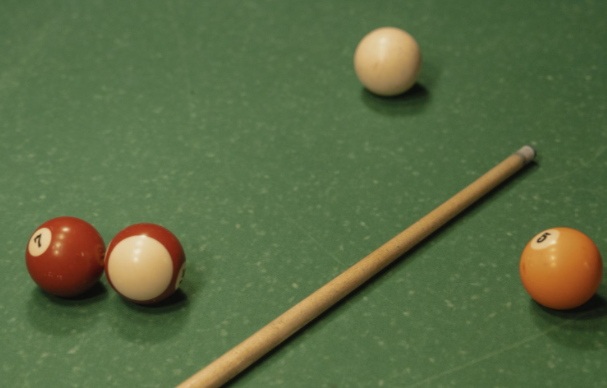As a beginner, you should focus on improving your fundamental abilities before expanding your strategic planning to play like an expert.
Snooker is a very complex and exciting game. However, for many individuals who are acquainted with the rules and complexities of the pool, the more popular of these two cue games, snooker presents a significant learning curve for a variety of reasons. One of these is the difference in rule sets. However, snooker also demands a higher level of skill and elegance than the typical pool game played in a pub.
Insight
The rules of snooker are a bit different from the pool. The snooker table is much larger than a pool table, which is the first factor that contributes to the game’s difficulty. To get the desired level of power and accuracy on your strokes, you must strike considerably harder with a greater degree of concentration since there is a greater possibility of making mistakes.
Snooker’s cue balls are unique. They lack numbers and are arranged by color, which also determines their point value. For instance, pocketing a red ball earns you one point, while capturing a black one in the pot earns you seven. Also, it is important to remember that you must strike the balls in ascending sequence. Therefore, you cannot go to other colors until all the red cue balls are in the pots.
Cues also play a significant role in mastering snooker. Not all cues are good for learning, and you might want to get a hand on the snooker cues for pros. Professionals use specific cues to take perfectly long, precise, and tactical shots.
Whether you are switching from pool to snooker or just want to improve your game, check out tips to sharpen your abilities!
Top Spin
If you are a casual player whose experience with cue sports is mainly confined to the occasional game of pool down at the bar, the most critical ball is always the object ball. It is all about whether it fits in the pocket. And, to a degree, the same is true in snooker. However, the cue ball is critical as well. If you cannot control it, you will never achieve significant breaks.
‘Top spin’ is a necessary component of your arsenal. Simply smash the object ball without regard for the path the white will take afterward, and you will be all over the place. However, suppose you master this basic technique. In that case, you may guarantee that the white continues far longer than the point where it collides with the object ball.
Raise your bridge hand above your usual level. This will result in the cue’s tip pointing higher up on the white. Significantly higher than the point at which you would usually hit it in the center. Now, play the shot and see the cue ball advance.
Stun Shot
You are trying to make a long pot (possibly a red one). You would like the white to remain in its current location at the point of contact with the red. There is also a black option. So, your option will be to stun it.
To stun a ball at close range, use the center (or just below the center) as your point of application. But, if the object ball is three to six feet away it is not going to work. Eventually, the ball will acquire topspin, and you will be unable to get the desired position.
Thus, you must lower the application. Next, apply backspin to the cue ball by striking the bottom of the center. By the time it reaches the red, the spin will be worn off and will remain still upon impact. That is if the ‘stun’ is applied properly.
Using The Rest
With any luck, after you have mastered controlling the white ball, you should not have to go searching for the rest too frequently. However, it will always come in useful at some time throughout the frame. However, do not be frightened by the others. It is hardly a revolutionary new method of playing or even cueing. Consider it to be an extension of your arm.
It is important to maintain a singular concentration on the pot at this point. You can not be too creative with your positioning, so focus on potting:
- Make sure that you have a solid, supporting hold on the end of the cue.
- The rest has been settled and moved out of the way of your shot.
- Parallel to the table, lift your elbow, align your shot, and poke it hard, with very little follow-through.
Screw Back
Carry out the same procedure as the stun shot with a closer object ball, and you will achieve a screw. Screwing and stunning are almost the same terms. The only difference between the two balls is the amount of space in between. Hit the white low centrally, and it will whizz right back to you when it collides with the item.
Massé shot
Now, it is doubtful that you will find yourself reaching for the famous ‘Massé shot’ too often. And that is probably for the best since you are unlikely to master it. It is highly technical, and even the best players have difficulty properly assessing it.
You would only want to use this flashy swerve shot when the object ball is not that far from the cue ball. You want to hit the cue ball forcefully and with little follow-through at a nearly vertical angle.
The white should follow the route of a banana, and you should make contact with the object ball. The degree of swerve is controlled by the speed of the shot and the precise location of the white.
Summary
The tips mentioned above will not guarantee that you will win the World Snooker Championship. However, they will help you compete against stronger opponents and acquire a greater knowledge of the game.
Any cue sport requires a considerable understanding of the game. Without the necessary tactical ability, you are unlikely to become a snooker expert.
Also, you should remember to maintain concentration, and exercise patience while improving your capacity. Finally, if you want to reach the top level, you must be diligent in your training and always look for a more difficult opponent.





